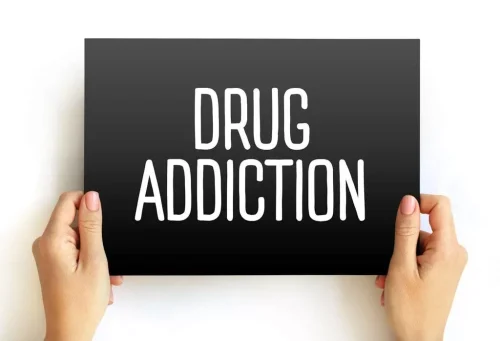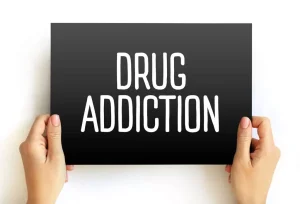Why Its Important to Share Your Recovery Story in 12-Step

People in recovery can share their experiences and the strategies that helped them beat addiction. This encourages others in the same situation, and helps reduce the stigma of addiction and mental health. An effective recovery story is essential for inspiring and engaging its audience. Honesty and vulnerability are key when it comes to sharing personal experiences of addiction and the journey to sobriety.
How sharing your story of recovery helps you and others
- The FHE Health team is committed to providing accurate information that adheres to the highest standards of writing.
- Telling your story can also be frightening if you have trouble opening up to others.
- If mentioning this moment helps give context or adds to your share, it’s okay to bring up these experiences.
- These narratives show that addiction is a condition that can be treated with the right help.
- As such, you don’t want this part of your story to run more than half an hour, assuming that you are telling your story at an hour-long speaker meeting.
This includes your family, friends, therapist, sponsor, 12-step group, and anyone else who has helped you on your journey. These people have played a vital role in your recovery, and their support should be recognized. It is important to assess both the past and the present when sharing your story and making your recovery story outline. The past can trigger some people, so only share what feels to be the most helpful in the present moment. Your past can serve as a blueprint for others to follow, or it can be a warning of what not to do to maximize success and learn from failures. Everyone has a unique relationship with addiction and recovery.
Why we share our story of addiction recovery in a ‘general way’
In this section, we will delve into the transformative impact of storytelling on healing. Additionally, we will provide valuable tips and considerations for those who are ready to share their own recovery story. Breaking the stigma connected to addiction and mental health is essential for promoting understanding and help to individuals facing these issues. By sharing personal recovery stories, individuals can challenge societal misconceptions and foster compassion. These narratives can give insight into the complex nature of addiction and mental health, leading to an inclusive and supportive society.
Storytelling as a Marketing Tool for Rehab Centers and Treatment Programs
Personal stories have a huge impact on attitudes, behavior, and actions related to addiction recovery. They can change people’s ideas about addiction and recovery, shaping their views. The importance of social support and accountability in addiction recovery is paramount.

Choose the Right Moment for You

This person may want your advice or just need someone to connect with. If there’s a time and place to be vulnerable, it’s when you’re sharing your recovery story. You’re in a room full of people who understand what you’re going through and have compassion. Much as the first stretch of your story included the tale of your first encounter with drugs sharing your story in recovery and alcohol, this stretch will include your sobriety date.
FHE Health Can Help
- A great example of storytelling as a marketing tool is Alcoholics Anonymous (AA).
- Before her many years in fundraising, Cindy was the Manager of Premium Services for American Airlines.
- Taking control of this aspect of their recovery often increases self-confidence and self-accountability.
- Amanda completed her Doctor of Nursing Practice and Post Masters Certification in Psychiatry at Florida Atlantic University.
The joy of sobriety is that we do not need synthetic euphoria to deal with life’s problems. This may not sound like the light at the end of the tunnel, but it is the closest that some will ever get. We may find that we do not always receive forgiveness from those we have wronged. Even then, you may choose to talk about these things when telling your story. You may discuss the newfound joys in your life, such as the manner in which embracing the First Tradition has put an end to your previous state of isolation. There are also many other benefits you may have experienced, such as new jobs, a new love, and repaired relationships with friends and family.
Sharing recovery stories has a healing power, especially in Alcoholics Anonymous. It’s a great tool for teaching, entertaining and healing, connecting the recovery community. It gives individuals support on their sobriety journey and helps break the feeling of being alone. These stories help people express emotions, experiences and lessons learnt. AA emphasizes the importance of storytelling for staying sober. With fellow members, people get support and keep their commitment to recovery.

They evoke empathy, resonance, and relatability in readers, touching hearts and providing a deep sense of connection. Storytelling is a powerful tool to express emotions, thoughts, and experiences. It captivates readers by drawing them into the narrative and making them part of the journey. Alcoholics Anonymous (AA) is a program that helps individuals struggling with alcohol addiction. Storytelling plays an important role in supporting members’ sobriety. It gives individuals a chance to connect with others who share similar experiences.

Personal stories provide real-life examples of individuals who have overcome similar challenges, making recovery more relatable and attainable. Additionally, sharing personal experiences promotes emotional healing through self-expression and helps others find hope and strength in their own recovery journey. Life lessons from stories include learning about yourself, developing coping skills, and making a support group.
